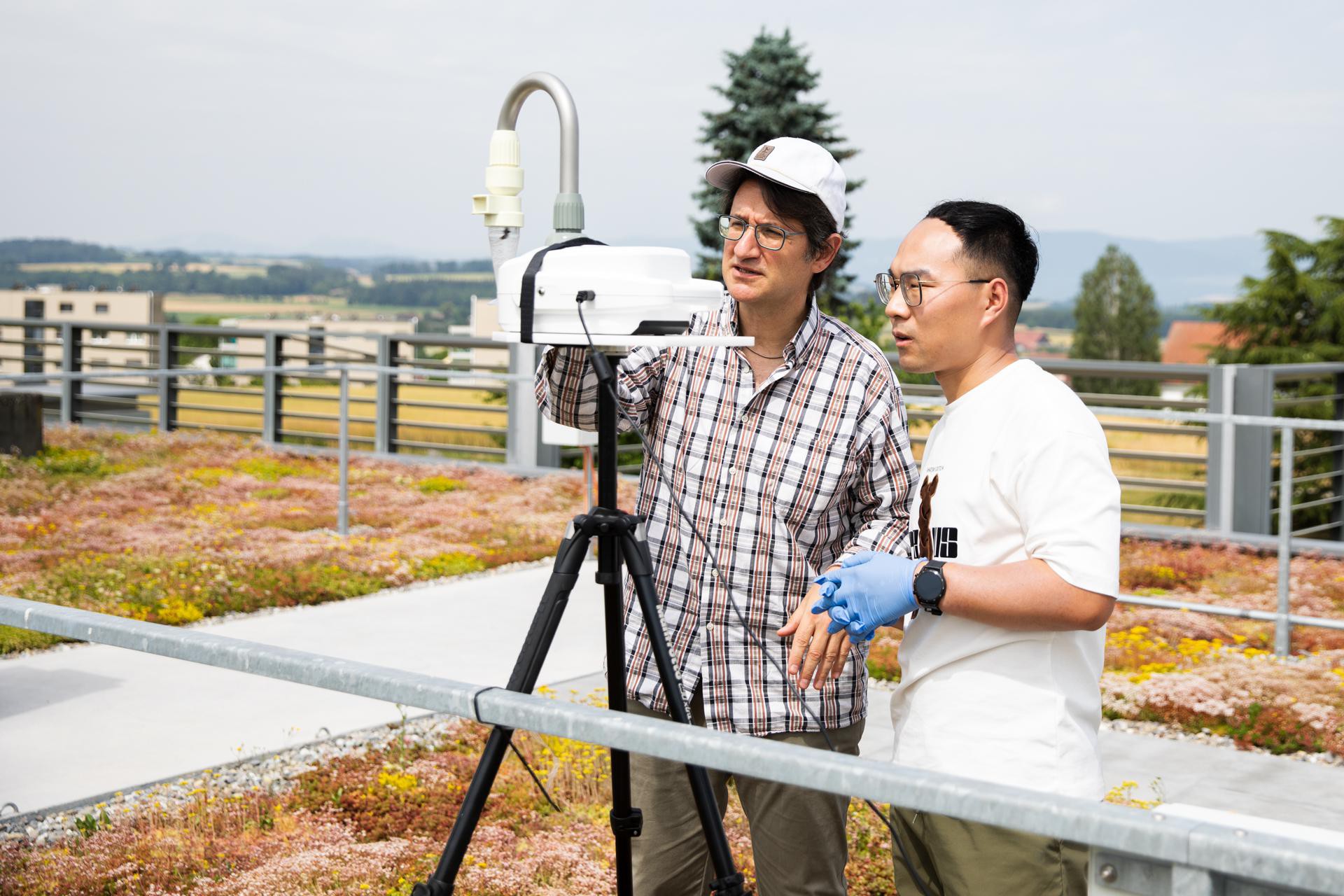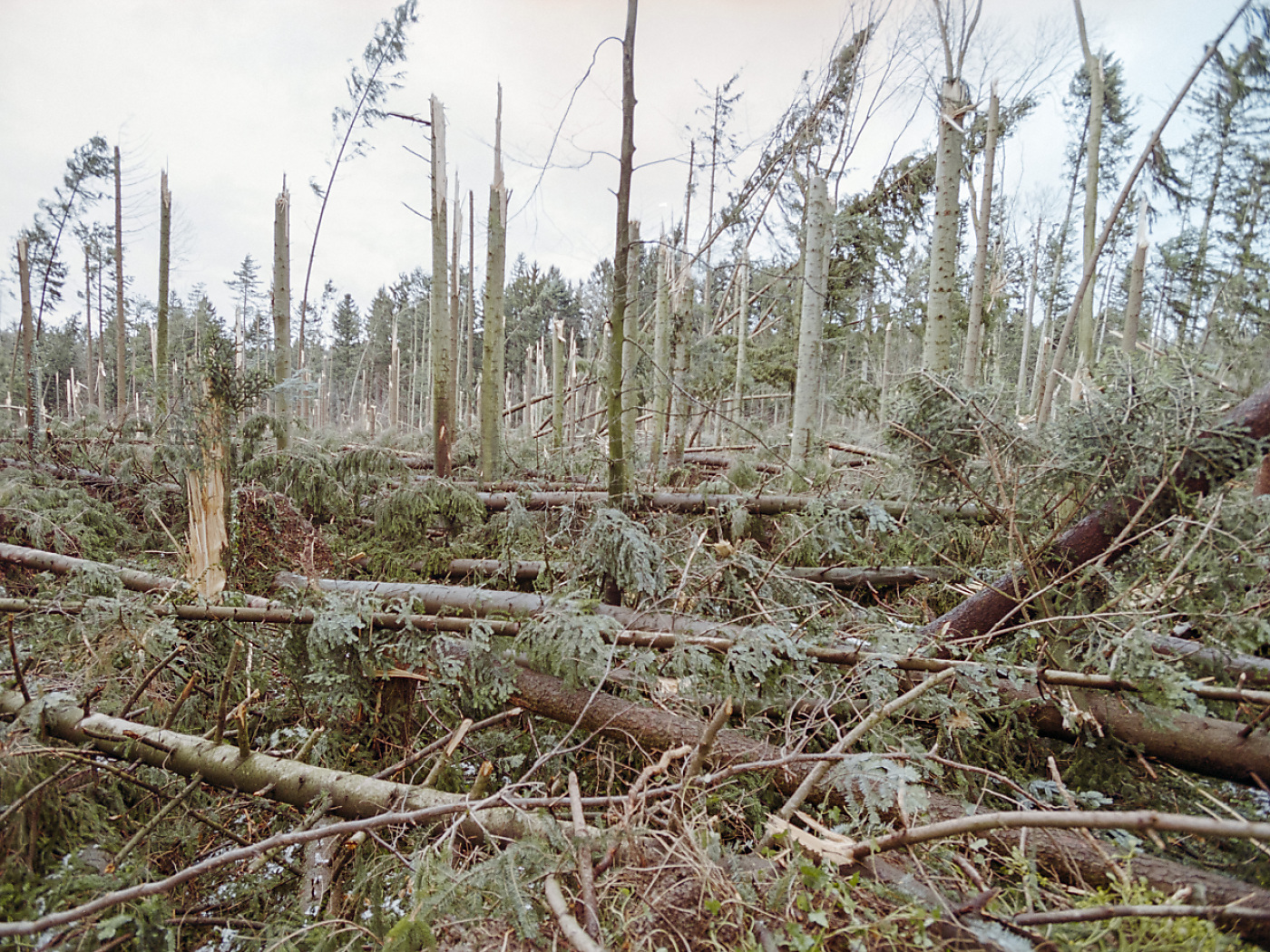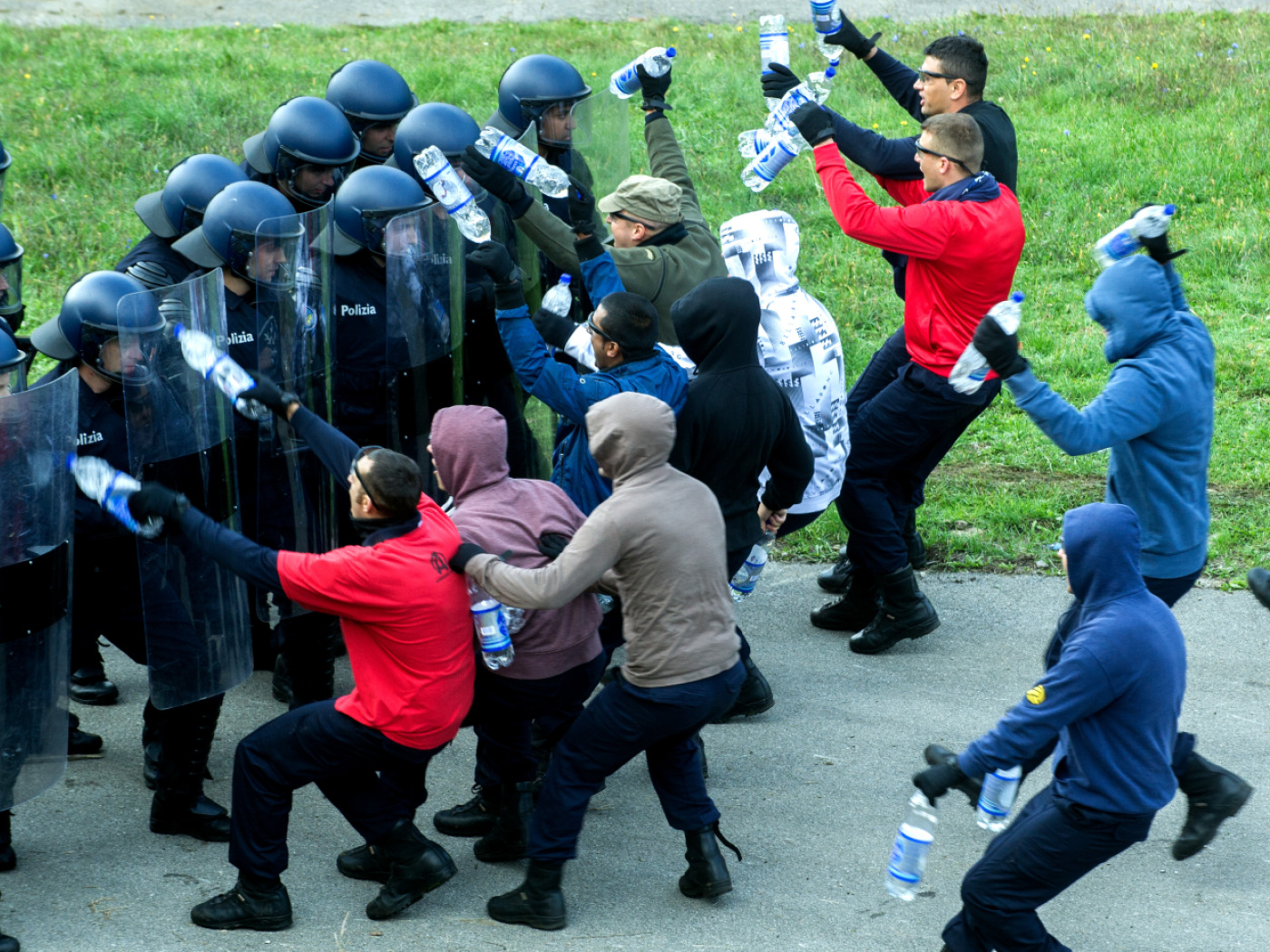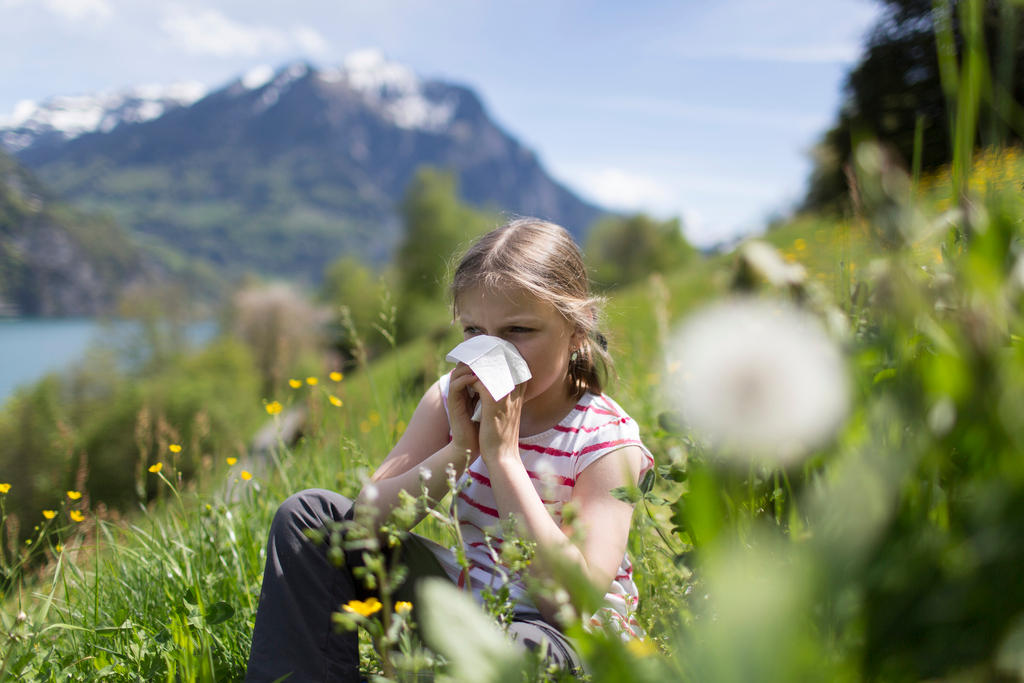Swiss-led project aims to improve pollen forecasting

Scientists in Switzerland have launched a pioneering project with the national weather office and European partners to improve pollen forecasting and our understanding of the impact of bioaerosols, smoke and dust on cloud formation and the climate.
Since the start of this year, various high-tech measuring instruments have been deployed at the MeteoSwiss weather station in Payerne, canton Vaud, to detect a broad range of aerosols with greater accuracy, the Federal Institute of Technology Lausanne (EPFL) reportedExternal link on Wednesday.
The new instruments will provide much more detailed and accurate forecasting capabilities. They will be able to detect a wider range of pollen types than in existing studies – thanks in part to work on vertical-laser remote sensing systems. The project is also investigating other causes of allergies and oxidative stress such as fungal spores, bacteria, dust and wildfire smoke, as well as methods to improve pollen forecasts and cloud formation.
MeteoSwiss already produces pollen maps for hay fever sufferers. These are an important tool for the public, particularly during peaks such as the record-high pollen counts this spring.
+ Looking for allergy relief in the pollen-free Swiss Alps
A LiDAR system, consisting of a ultraviolet-pulsed laser coupled with a receiver telescope and electro-optical instruments, was installed at Payerne in May. It can detect the light reflected by particles in real time and also identify the source of particles and the quantities in the air. There are only four such instruments in operation worldwide.
The roof of the Payerne weather station is home to many other instruments. For example, a camera captures photos of pollen grains and fungal spores up to ten times per second. Once processed, the 3D images are fed into a machine, which is trained to identify which type of organism the particles come from, helping to improve pollen forecast maps.
+ High pollen count drives uptick in allergy problems
Researchers are also measuring the concentrations and sizes of different aerosols trapped in a small vial of flowing water known as a “wet cyclone.” This capture method is preferable to a filter because it can collect dust and other insoluble particles without destroying sensitive biological particles like bacteria. The particles are then frozen so that scientists can analyse their chemical and genomic composition and determine how the particles affect human health.
This information also sheds important light on the process of ice formation in clouds – and therefore on precipitation.
“The health impact of these aerosols is vastly underestimated,” said EPFL professor Athanasios Nenes in the press release. “That’s why it’s so important to get to the bottom of what’s really happening. We’re often clueless about what’s going on right over our heads, especially when it comes to bioaerosols and smoke particles.”
+ The Swiss Alps: an allergy-free haven?
It is hoped that the new technologies can help develop enhanced real-time maps to inform public-health policies.
“We’ve already identified significant room for improvement in current forecasting models,” explains Professor Alexandros Papagiannis of the National Technical University of Athens. “Pollen counts change dramatically over the course of a single day, with the highest concentrations recorded in the daytime.”
The research is being carried out jointly by MeteoSwiss, the Federal Institute of Technology Lausanne (EPFL), the National Technical University of Athens, and the Foundation for Research and Technology – Hellas and has received funding from the Swiss National Science Foundation, and the prestigious European Research Council.

In compliance with the JTI standards
More: SWI swissinfo.ch certified by the Journalism Trust Initiative




















You can find an overview of ongoing debates with our journalists here . Please join us!
If you want to start a conversation about a topic raised in this article or want to report factual errors, email us at english@swissinfo.ch.